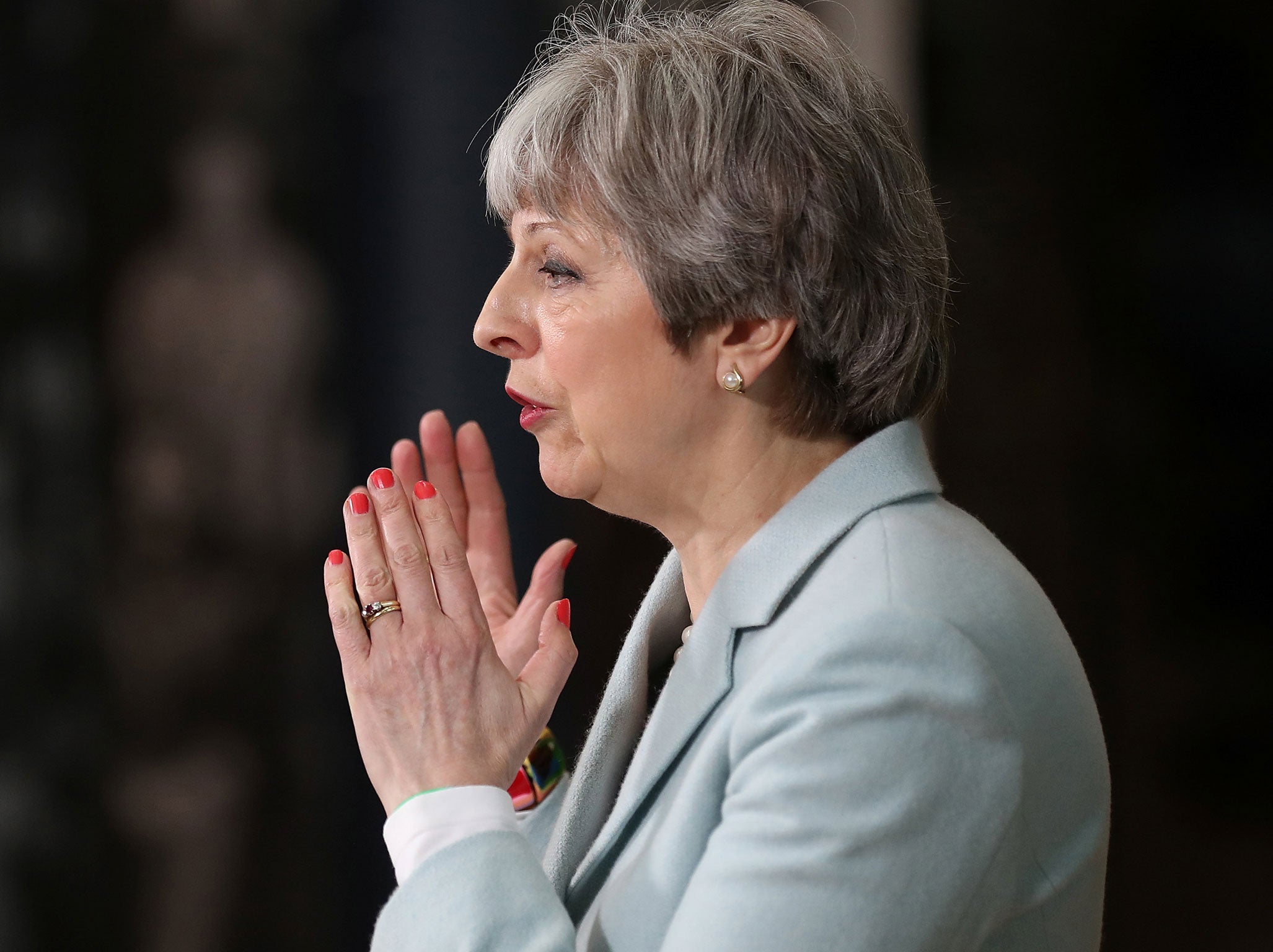Theresa May criticises university vice chancellors who have say in setting their own pay
Prime Minister announces wide-ranging review into university financing and admits 'concern' over high pay

Your support helps us to tell the story
From reproductive rights to climate change to Big Tech, The Independent is on the ground when the story is developing. Whether it's investigating the financials of Elon Musk's pro-Trump PAC or producing our latest documentary, 'The A Word', which shines a light on the American women fighting for reproductive rights, we know how important it is to parse out the facts from the messaging.
At such a critical moment in US history, we need reporters on the ground. Your donation allows us to keep sending journalists to speak to both sides of the story.
The Independent is trusted by Americans across the entire political spectrum. And unlike many other quality news outlets, we choose not to lock Americans out of our reporting and analysis with paywalls. We believe quality journalism should be available to everyone, paid for by those who can afford it.
Your support makes all the difference.Theresa May has hit out at university vice chancellors who take part in setting their own pay.
The Prime Minister said she was “concerned” over a recent row about university leaders who take home many hundreds of thousands of pounds after having a say in determining their own salary.
It comes after data release in response to a freedom of information request by the University and College Union (UCU) revealed 95 per cent of vice chancellors are either on the committee that sets their pay or are allowed to attend the meetings where the decision is made.
Just seven of the 158 universities surveyed said they stop vice chancellors taking part in meetings about their own pay.
Asked about the issue after delivering a keynote speech on education, Ms May said: “One of the points I would make – that I know the universities minister, Sam Gyimah, also made – is we should be concerned when we see vice-chancellors sitting on remuneration committees which determine their pay.”
It follows a row over the salaries of university leaders after it was revealed that Christina Slade, the departing vice chancellor of Bath Spa University, was paid £800,000 in her last year in the job.
Labour peer Lord Andrew Adonis has called for an independent inquiry into the issue, which he called “straightforwardly outreagous”.
Guidance published last month by the Committee of University Chairs said vice chancellors should not be involved in decisions about their own pay. It also suggested universities should be forced to justify any decision to pay a vice chancellor more than 8.5 times the average staff salary.
Ms May was speaking at Derby College, where she announced a wide-ranging review of tuition fees and the university funding system.
Highlighting problems with the existing arrangements, she said: “Making university truly accessible to young people from every background is not made easier by a funding system which leaves students from the lowest-income households bearing the highest levels of debt, with many graduates left questioning the return they get for their investment.”
In addition to looking at tuition fees, the review will consider how students from disadvantaged backgrounds receive support. The system of maintenance grants was replaced by a loan scheme under the Coalition Government.
Ms May said: “We must have an education system at all levels which serves the needs of every child. And if we consider the experience which many young people have of our system as it is, it is clear that we do not have such a system today.”
Join our commenting forum
Join thought-provoking conversations, follow other Independent readers and see their replies
Comments